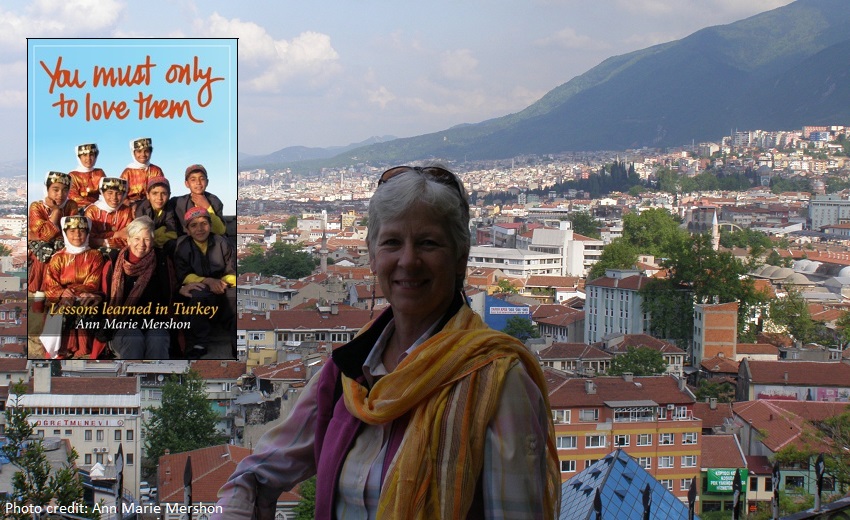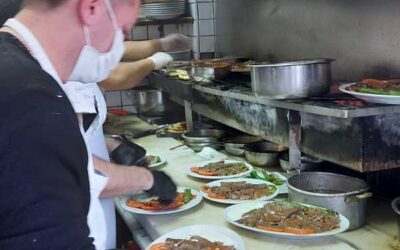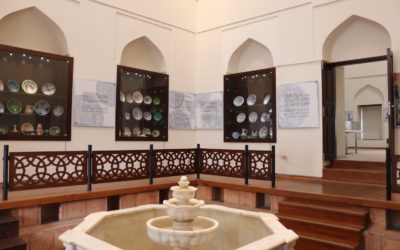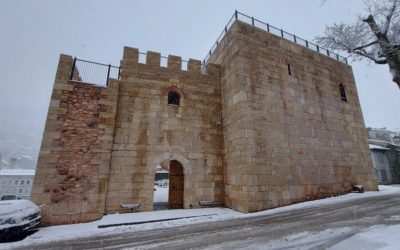Before I left to teach in Istanbul, I met Uygar, a business intern at a local resort in my community. He called me to meet for coffee one day, and we soon became fast friends. I’d heard that Turkish students were an exuberant lot, difficult to control, so I asked him for advice.
“Should I be strict?” Discipline wasn’t my forte; I tend to be more understanding than firm. “If I’m harsh, will they hate me? Say nasty things about me in Turkish? Can I trust them?”
“Turkish students can be very loud sometimes and happy—also very sad if things are going wrongly. You must only to love them. Then they will respect to you. It is mistake to being harsh.”
During my fourth teaching stint, this time at Robert College, I was thrilled to receive an invitation to spend a weekend with Uygar and his family near Bursa, across the Marmara from Istanbul. I’d never stayed in a Turkish home and was excited to see Uygar. They picked me up at the bus station, quite late. At the door I removed my shoes and was offered a pair of high-heeled slippers that I could barely squeeze my toes into. I hobbled through the apartment to discover a table set for dinner, even at 10 o’clock. Though I’d eaten earlier, I joined them for a sumptuous meal of çorba (soup), dolma (stuffed vegetables), fried artichoke hearts, salad, bread, and dessert. Neziye had been cooking all day, so I couldn’t refuse. I was as stuffed as the dolma I’d just devoured.
Their apartment was lavishly decorated with ruffled white curtains, an antique velour couch, and carved antique tables—all more ornate than I was accustomed to, “modern Turkish.” Uygar showed me their view overlooking the Marmara then beamed as he pointed out his mother’s paintings. He coaxed her to sing a few traditional Turkish tunes with her oud, a rounded 10-stringed instrument. It was lovely, but so late! Bleary-eyed, I dragged myself to bed.
I woke late, was greeted with kisses from Uygar and his mother, then enjoyed a breakfast of gözleme (like a potato quesadilla), olives, tomatoes, and cucumbers. As we ate, Uygar translated. “My mother says you should let your hair grow long and dye it black.” Neziye was a fashion queen—in her way.
“Natural,” I answered, indicating my white-blonde hair, a color some call platinum. She nodded and smiled back, then patted her long, attractively coiffed black hair that actually did make her look younger. It wasn’t until that moment that I realized only elderly women leave their hair gray in Turkey. Future research affirmed my theory—all the gray-hairs on the street were tourists or ex-pats.
Uygar and his parents, both retired teachers, proudly guided me through their community and the nearby city of Bursa, but my favorite part was getting to know them. I was a little jealous to learn that they’d retired from teaching at 45, typical in Turkey.
Before Sunday dinner with relatives, Uygar’s father, Hakki, suggested we check the bus schedule for my ride home. It turned out all the busses were full. “Unbelievable!” he said. “You never have to reserve for a bus. We’ll just go at 5:00 and try to get you a seat.” I was petrified that I might miss school on Monday.
As we prepared dinner, Uygar’s aunt stepped into the next room and placed a linen on the arm of the couch. I assumed she needed a nap and focused my attention on kitchen tasks. The next time I glanced over, she was kneeling in quiet prayer, an unobtrusive ritual. I was touched.
Thanks to Hakki’s fast talking, I got a seat on the bus in spite of a waiting crowd. Perhaps he said I was a teacher, or maybe he used the “Robert College” card. Whatever he did, I was thankful for the ride home.
A special thanks to Ann Marie for sharing her excerpt here at The Best of Bursa. Text and photos in this post are copyright © Ann Marie Mershon, republished here by permission.







0 Comments